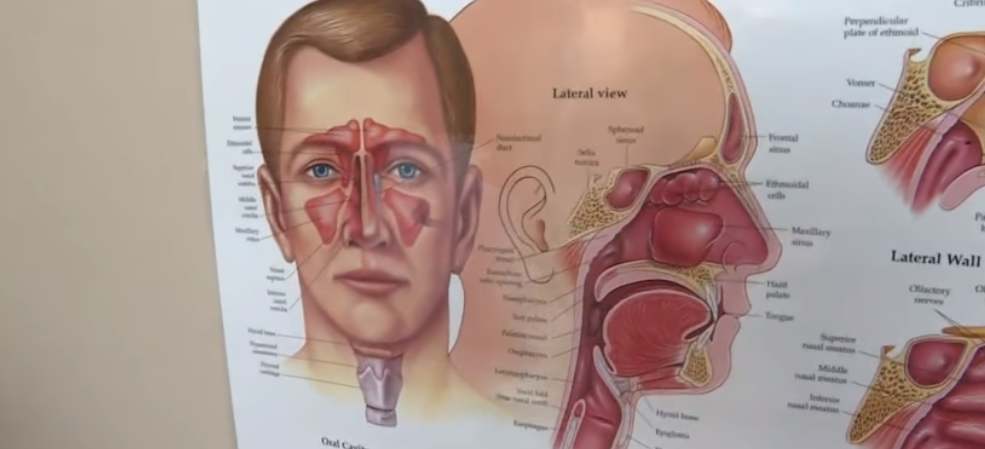Air conditioning can cause breathing problems for people with pre-existing respiratory issues such as asthma or COPD.
The air conditioner might not be cleaning the air properly, leading to an accumulation of dust, pollen, and other allergens in the air.
People may also experience shortness of breath due to cold temperatures produced by the AC unit.
Furthermore, if moisture is not removed from the environment adequately then mold growth could occur which can further exacerbate breathing difficulties.
To prevent these types of issues, it is important that your AC unit is regularly serviced and filters are changed when necessary.
Additionally, ensure that you are using a humidifier during drier months to maintain relative humidity at around 40-50%.
Finally monitor indoor air quality with a device such as an IAQ meter so that any changes in levels can be addressed quickly before they become serious health concerns.

How Do I Know If My Ac is Making Me Sick?
In the summer months, having a functioning air conditioner is essential to staying cool and comfortable.
Unfortunately, if your AC unit isn’t properly maintained or is malfunctioning, it could be making you sick.
To determine if your AC system is causing health issues, look for the following signs: First and foremost, pay attention to how you are feeling when in the same room as the AC unit.
Do you experience headaches more often?
Are there any respiratory symptoms such as sneezing or coughing that worsen when near the unit?
If so, this could indicate that mold or bacteria are present in the HVAC system due to lack of maintenance or improper filtration.
Also check for strange smells coming from vents – musty odors can signify poor air quality within your home caused by dirty ductwork or clogged filters.
Finally, consider having an experienced technician inspect your system – they can identify potential problems with indoor air quality and suggest solutions to keep everyone healthy in your home during hot weather conditions.
aking regular breaks away from AC units when possible will give you an opportunity for your lungs to recover naturally.
What Illnesses Can Air Conditioning Cause?

Air conditioning is a modern convenience that we often take for granted, but it can also be the cause of some illnesses.
Many people are unaware of how air conditioning affects their health and may not recognize when they’re exhibiting symptoms caused by an A/C system.
Common illnesses related to air conditioning include allergies and asthma, headaches, dry skin and eyes, fatigue, respiratory infections, sinus problems, sore throat or flu-like symptoms.
Allergies are commonly triggered in rooms with poor ventilation as the particles from dust mites linger in the air.
Asthma sufferers can experience difficulty breathing due to the higher concentration of pollutants circulating within the room.
Similarly, excessive dryness caused by overuse of air conditioners can lead to headaches and dry skin or eyes which can be uncomfortable for those suffering from them.
In addition to physical discomfort associated with prolonged exposure to conditioned environments; people may feel overly fatigued because their bodies cannot cool down properly due to lack of humidity in the atmosphere as well as decreased oxygen levels resulting from improper circulation systems.
Finally, complications arise when moisture accumulates leading to spores and bacteria growth causing respiratory infection such as Legionnaires’ Disease or other serious lung conditions like Aspergillosis (invasive fungal disease).
Therefore, it is important for us all ensure our homes are adequately ventilated so that we can avoid any potential health hazards related directly or indirectly with air conditioning units!
VERIFY: Do air-conditioners cause sinus congestion?
How to Get Rid of an Air Conditioner Cough?
If you cough every time you turn on your air conditioner, chances are it’s due to dust and other allergens being circulated through the air.
To eliminate this type of cough, start by cleaning or replacing the filters in your AC unit.
Additionally, use a vacuum cleaner with a long hose attachment to clean out any dust-filled vents and ducts that might be causing the problem.
Finally, make sure to keep up with regular maintenance and inspections of your AC system to avoid this issue in the future!
Is Air Conditioning Good for Pneumonia?
Air conditioning is not generally considered a good treatment for pneumonia.
In fact, air conditioners can actually worsen symptoms of pneumonia by drying out the air and making it harder to breathe.
It’s best to keep your home well-ventilated while recovering from pneumonia in order to help clear congested lungs and reduce risk of infection.
Additionally, be sure to stay hydrated and get plenty of rest as these will help with recovery more than anything else.
Side Effects of Air Conditioner on Human Body

Air conditioners can have a number of positive effects on human health, providing relief from hot temperatures and reducing humidity.
However, they can also have some negative side effects if not used properly or with caution.
Excessive exposure to air conditioning may cause dehydration due to the dry air in indoor environments, as well as irritation of the eyes, skin and throat caused by the recycled air and cold drafts.
Additionally, overuse of an AC unit may lead to increased headaches among people who are sensitive to changes in temperature or humidity levels.
It is important for those using an AC unit frequently to maintain proper hydration levels by drinking enough water throughout the day and taking regular breaks from direct exposure to cool air.
Conclusion
In conclusion, air conditioning can be a major cause of breathing problems in people with respiratory conditions.
This is due to the fact that air conditioners often circulate dust, pollen and other allergens throughout the home or office space.
Additionally, they reduce humidity levels which can make it difficult for those with asthma and allergies to breathe properly.
Therefore, if you suffer from any type of respiratory issue, it is important to take steps to ensure that your air conditioning system is working effectively and does not contribute further to your health issues.